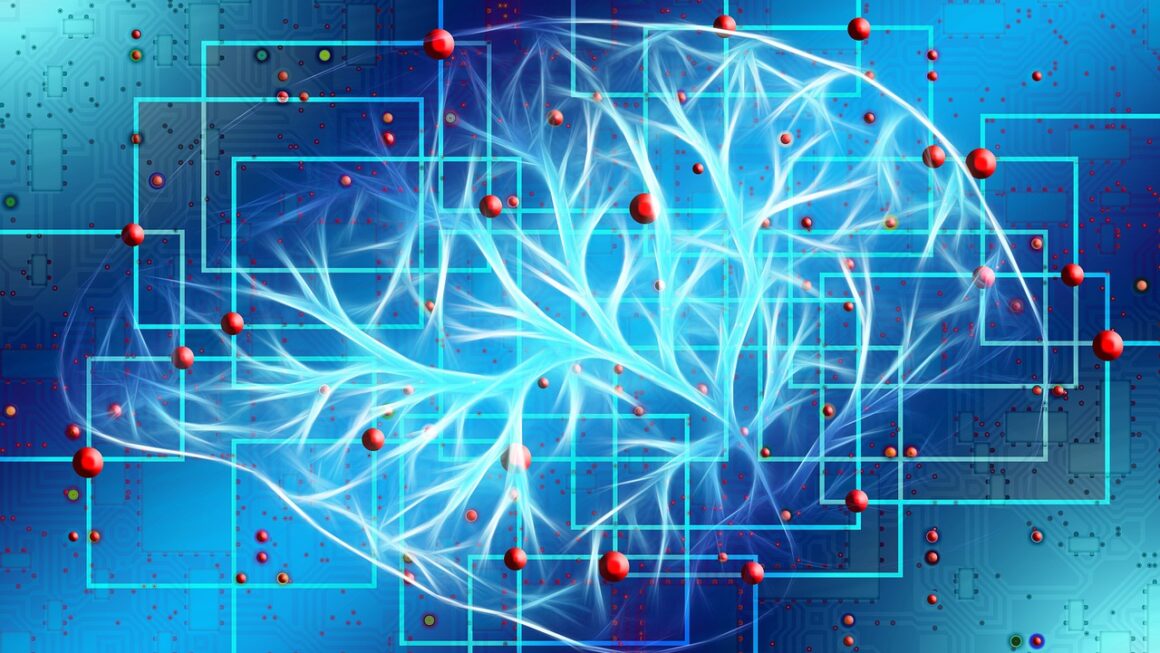AI is transforming every industry, and networking is no exception. The rise of artificial intelligence is bringing unprecedented efficiency, personalization, and intelligence to the way we connect with others, whether for professional or personal purposes. This article delves into the exciting world of AI networking, exploring its applications, benefits, and potential impact on the future of connection and collaboration.
What is AI Networking?
Defining AI Networking
AI networking leverages artificial intelligence, machine learning, and data analytics to automate, optimize, and enhance the process of building and maintaining connections. Unlike traditional networking methods that rely heavily on manual efforts and guesswork, AI networking employs algorithms to analyze vast amounts of data, identify relevant connections, and facilitate meaningful interactions. It’s about moving beyond simply collecting contacts to actively cultivating a valuable and productive network.
Key Technologies Involved
AI networking integrates various technologies:
- Machine Learning (ML): ML algorithms learn from data to predict potential connections, personalize interactions, and optimize network growth.
- Natural Language Processing (NLP): NLP enables AI systems to understand and interpret human language, facilitating more natural and intuitive communication.
- Data Analytics: Analyzes network data to identify patterns, trends, and insights that can be used to improve networking strategies.
- Recommendation Engines: Suggest relevant contacts, content, and events based on user profiles and interests.
Example Scenario
Imagine a software engineer attending a tech conference. Traditionally, they might wander around, hoping to stumble upon relevant individuals. With AI networking, an app could analyze their profile, the conference attendee list, and the event schedule to suggest specific people they should meet based on their shared skills, interests, and project needs. The app could even facilitate introductions and provide conversation starters.
Benefits of Using AI in Networking
Increased Efficiency and Time Savings
- Automated Contact Discovery: AI can automatically identify potential connections based on predefined criteria, saving valuable time and effort in searching for relevant individuals.
Example: An AI-powered CRM system can scan through social media profiles, industry databases, and internal company data to identify potential sales leads that match a specific customer profile.
- Streamlined Communication: AI can automate routine networking tasks such as scheduling meetings, sending follow-up emails, and managing contact information.
Example: AI-powered chatbots can handle initial inquiries and schedule meetings, freeing up human representatives to focus on more complex interactions.
- Personalized Recommendations: AI can provide personalized recommendations for networking events, groups, and individuals based on your interests and goals.
Example: A platform can suggest relevant industry webinars, conferences, and online communities based on your professional background and expressed interests.
Enhanced Personalization and Relevance
- Targeted Connection Suggestions: AI algorithms analyze data to suggest connections that are most likely to be beneficial, increasing the chances of forming meaningful relationships.
Example: A LinkedIn extension can suggest individuals from your extended network who share your interests or have worked at companies you admire.
- Personalized Content Delivery: AI can deliver relevant content and information to your network, increasing engagement and strengthening relationships.
Example: An email marketing platform can use AI to personalize email subject lines and content based on recipient demographics, past interactions, and preferences.
- Tailored Communication Strategies: AI can analyze communication patterns to recommend the most effective strategies for engaging with different individuals in your network.
Example: An AI-powered sales tool can suggest the best time of day and communication channel (email, phone, social media) to reach out to specific prospects based on their past behavior.
Improved Network Growth and Management
- Data-Driven Networking Decisions: AI provides insights into your network’s strengths and weaknesses, allowing you to make informed decisions about how to grow and manage your connections.
Example: A network analysis tool can identify key influencers within your network and highlight areas where you lack connections, enabling you to strategically expand your reach.
- Automated Network Maintenance: AI can help you stay connected with your network by reminding you to reach out to specific individuals, sharing relevant content, and facilitating introductions.
Example: A CRM system can automatically schedule reminders to follow up with important contacts and suggest relevant articles or resources to share.
- Identification of Hidden Opportunities: AI can identify hidden opportunities within your network that you might otherwise miss, such as potential partnerships, collaborations, or job leads.
* Example: An AI-powered job search tool can analyze your network connections to identify unadvertised job openings or individuals who can provide valuable insights into a specific company.
Practical Applications of AI Networking
AI-Powered Networking Platforms
These platforms use AI to connect professionals based on skills, interests, and goals.
- Example: Lunchclub uses AI to match professionals for virtual lunch meetings based on shared interests and career goals.
- Features: Automated matching, intelligent scheduling, personalized introductions, conversation starters.
AI in Recruitment and HR
AI can assist recruiters in identifying and connecting with qualified candidates.
- Example: AI-powered recruitment platforms like Beamery use machine learning to identify potential candidates based on skills, experience, and cultural fit.
- Benefits: Faster candidate sourcing, improved candidate quality, reduced bias in hiring.
AI in Sales and Marketing
AI can help sales and marketing teams identify and connect with potential customers.
- Example: Sales automation tools like HubSpot use AI to identify leads, personalize outreach, and track customer interactions.
- Benefits: Increased lead generation, improved customer engagement, higher conversion rates.
AI in Event Management
AI can enhance networking opportunities at events by connecting attendees with relevant individuals.
- Example: Event apps that use AI to suggest attendees to meet based on their profiles and interests.
- Features: Personalized event schedules, intelligent matchmaking, real-time feedback.
Challenges and Considerations
Data Privacy and Security
- Challenge: Ensuring the privacy and security of personal data used for AI networking.
- Considerations: Implementing robust data protection measures, obtaining explicit consent for data usage, complying with relevant data privacy regulations (e.g., GDPR, CCPA).
Bias and Fairness
- Challenge: Avoiding bias in AI algorithms that could lead to unfair or discriminatory networking outcomes.
- Considerations: Regularly auditing AI models for bias, using diverse datasets for training, implementing fairness metrics to evaluate performance.
Ethical Concerns
- Challenge: Addressing ethical concerns related to AI networking, such as manipulation, deception, and the erosion of human connection.
- Considerations: Developing ethical guidelines for AI networking, promoting transparency and accountability, prioritizing human well-being and societal benefit.
Over-Reliance on Technology
- Challenge: Risk of becoming overly reliant on AI, diminishing the importance of genuine human interaction.
- Considerations: Using AI as a tool to augment, not replace, human networking skills. Balance technological assistance with face-to-face interactions.
Conclusion
AI networking is poised to revolutionize the way we connect and collaborate, offering unprecedented opportunities for efficiency, personalization, and network growth. By understanding its applications, benefits, and challenges, professionals and organizations can leverage AI to build stronger, more valuable networks that drive success in an increasingly interconnected world. However, it’s crucial to address the ethical concerns and potential pitfalls associated with AI networking, ensuring responsible and beneficial implementation. As AI continues to evolve, embracing these technologies while maintaining a focus on genuine human connection will be key to unlocking the full potential of AI in networking.




